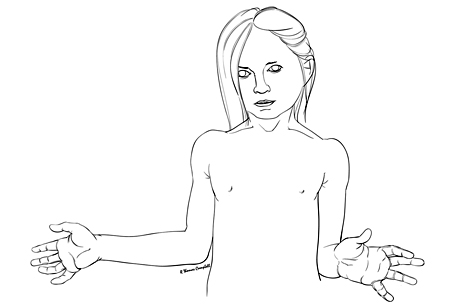Resumo
Definição
História e exame físico
Principais fatores diagnósticos
- paralisia de um braço
- movimento reduzido observado de um braço
- postura anormal do braço
Outros fatores diagnósticos
- crepitação da clavícula ou úmero
- síndrome de Horner
- taquipneia, desconforto respiratório, dificuldades de alimentação, retardo do crescimento pôndero-estatural
- falta de total amplitude de movimentos passivos
- hiper-reflexia, reflexos primitivos persistentes, tônus muscular anormal ou postura corporal anormal
Fatores de risco
- distocia do ombro
- tamanho fetal grande (>4000 g)
- diabetes materno (principalmente do tipo 1) ou diabetes mellitus gestacional
- obesidade materna
- apresentação de nádegas
- segunda fase do trabalho de parto atípica
- parto assistido
Investigações diagnósticas
Primeiras investigações a serem solicitadas
- diagnóstico clínico
- radiografia torácica e do membro superior afetado
Investigações a serem consideradas
- ultrassonografia do ombro
- RNM/mielografia por RNM
- TC/mielotomografia
- eletromiografia (EMG)/estudos da condução nervosa
Novos exames
- ressonância nuclear magnética (RNM) tridimensional com densidade de prótons para avaliar o plexo braquial
- avaliação por RNM volumétrica e EMG dos músculos do manguito rotador
- avaliação ultrassonográfica do plexo braquial
Algoritmo de tratamento
neonatos e lactentes
após o tratamento inicial
Colaboradores
Autores
Mark J. Adamczyk, MD
Co-Director
Brachial Plexus Treatment Center
Vice-Chairman
Department of Pediatric Orthopedic Surgery
Akron Children's Hospital
Akron
OH
Declarações
MJA declares that he has no competing interests.
Stephanie A. Russo, MD, PhD
Co-Director
Brachial Plexus Treatment Center
Pediatric Hand and Peripheral Nerve Surgery
Akron Children’s Hospital
Akron
OH
Declarações
SAR declares that she has no competing interests.
Revisores
Whitney E. Muhlestein, MD
Peripheral Nerve Fellow
University of Michigan
Ann Arbor
MI
Declarações
WEM declares that she has no competing interests.
Tim Hems, MA, DM, FRCS(Eng), FRCSEd(Orth)
Consultant Hand and Orthopaedic Surgeon
Queen Elizabeth University Hospital
Glasgow
UK
Declarações
TH declares that he has written a number of publications over the last few years which highlight the lack of evidence that nerve repair surgery improves outcome in brachial plexus birth palsy.
Créditos aos pareceristas
Os tópicos do BMJ Best Practice são constantemente atualizados, seguindo os desenvolvimentos das evidências e das diretrizes. Os pareceristas aqui listados revisaram o conteúdo pelo menos uma vez durante a história do tópico.
Declarações
As afiliações e declarações dos pareceristas referem--se ao momento da revisão.
Referências
Principais artigos
American College of Obstetricians and Gynecologists. Neonatal brachial plexus injury. 2014 [internet publication].Texto completo
Royal College of Obstetricians and Gynaecologists. Shoulder dystocia: green-top guideline no 42. March 2012 [internet publication].Texto completo
Smith BW, Daunter AK, Yang LJ, et al. An update on the management of neonatal brachial plexus palsy-replacing old paradigms: a review. JAMA Pediatr. 2018 Jun 1;172(6):585-91. Resumo
Vuillermin C, Bauer AS. Boston Children's Hospital approach to brachial plexus birth palsy. J Pediatr Orthop B. 2016 Jul;25(4):296-304. Resumo
Pondaag W, Malessy MJA. Evidence that nerve surgery improves functional outcome for obstetric brachial plexus injury. J Hand Surg Eur Vol. 2021 Mar;46(3):229-36.Texto completo Resumo
Artigos de referência
Uma lista completa das fontes referenciadas neste tópico está disponível para os usuários com acesso total ao BMJ Best Practice.

Diagnósticos diferenciais
- Fratura da clavícula ou úmero
- Artrite séptica do ombro ou osteomielite umeral proximal
- Tumor da medula espinhal ou plexo braquial
Mais Diagnósticos diferenciaisDiretrizes
- The evaluation and management of neonatal brachial plexus palsy
- ACOG neonatal brachial plexus palsy: task force report
Mais DiretrizesConectar-se ou assinar para acessar todo o BMJ Best Practice
O uso deste conteúdo está sujeito ao nosso aviso legal